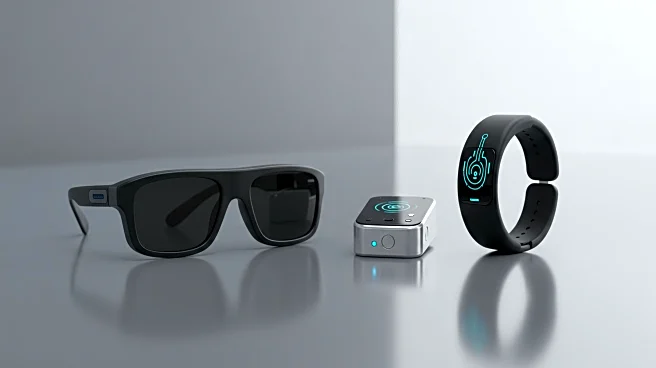What's Happening?
Meta is preparing to launch its first 'real' smart glasses, rumored to include a display and a neural wristband for control. The wristband reads electrical signals in the arm for input, raising concerns about practicality and user acceptance. While the technology is innovative, the requirement to wear a wristband may deter potential buyers, reminiscent of the challenges faced by Google Glass. The success of Meta's smart glasses may hinge on overcoming these usability and aesthetic issues.
Why It's Important?
Meta's venture into smart glasses represents a significant step in wearable technology, potentially influencing the future of augmented reality and personal computing. However, the integration of a neural wristband poses challenges in user adoption, highlighting the importance of design and functionality in consumer technology. The outcome of Meta's launch could impact the company's position in the tech market and set precedents for future wearable devices.
Beyond the Headlines
The development of smart glasses with neural control raises ethical and privacy concerns, as the technology involves reading electrical signals from the body. This innovation prompts discussions about data security and user consent, emphasizing the need for clear regulations and guidelines. The broader implications of such technology could influence societal norms around privacy and the integration of technology into daily life.











